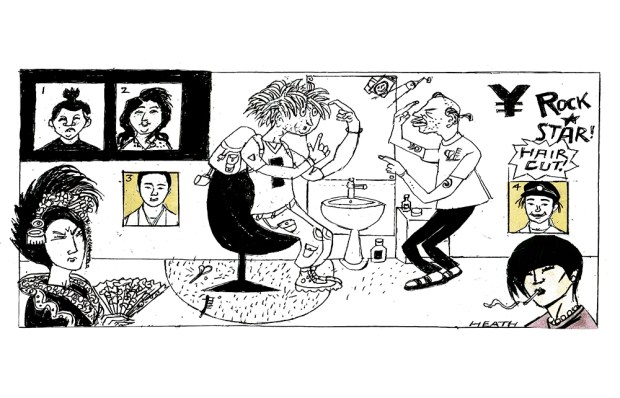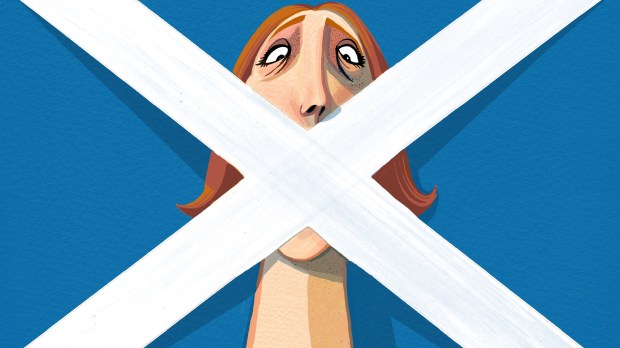There is a joke going around Poland at the moment which encapsulates the national character perfectly. A German is told he has to have the Covid vaccine. He is uncertain. ‘It’s an order,’ the doctor says, and so he agrees. A British man is told the same. He wavers. ‘Do it for Queen and country,’ the doctor says. He agrees. A French man is told ‘It’s the fashionable thing to do’, and he agrees, too. Finally, a Pole has his turn. The doctor says: ‘You’re Polish, you definitely won’t take the vaccine.’ The Pole replies: ‘Don’t tell me what I think. Give me that vaccine!’
Anyone who knows Poles (I’m half Polish, so I do) will find it unsurprising that they are sceptical about the vaccine. A poll by Kantar in December found that 47 per cent of Poles in Poland were more afraid of side effects from the jab than of the virus itself. Poland is second only to Russia on the list of countries that are most suspicious of the vaccine, according to a survey for Nature.
The Polish government has been worrying about this for years. Its research shows the number of people with non-medical reasons for refusing vaccines has grown tenfold since 2010, and the proportion of children being vaccinated against measles is in danger of falling below the 95 per cent threshold required for herd immunity. This is despite the fact that childhood vaccines are compulsory in Poland, a policy that drives people to the street in protest.
Vaccine hesitancy is equally prevalent among Polish people living in Britain, and given that their population here is thought to be around 900,000, it could be a serious threat to the government’s vaccine programme if a significant number of them avoid having the jab. There has already been much discussion about how to persuade Britain’s BAME communities to take the vaccine. But Eastern Europeans (of which Britain’s Poles make up around half) have been named as the second most likely community not to have the Covid vaccine in recent UK studies.
The Polish embassy in London says it has already started working with government-funded marketing agencies to organise educational programmes for Poles across the UK to try to address what it admits is a serious problem. ‘The fear and resistance comes from a lack of knowledge about vaccines, poor English in many cases, as well as the large amount of disinformation in Polish on the internet about vaccines,’ a Polish embassy official told me, though she also mentioned that the embassy has had some success persuading Polish ex-servicemen in London care homes to have the jab.
Large sections of Britain’s Polish community live isolated from the UK media. They watch Polish television, keep in touch with family and friends and share scare stories about the vaccines: that they are made with human embryos, leave women infertile or even put electronic chips into the brain. Poles are wary of pharmaceutical companies such as Pfizer, and fear that the vaccine was created in too short a space of time and has not undergone sufficient testing.
To understand the Polish mentality, it is important to look at what the country has been through over the past two centuries — most of which it spent under malevolent foreign domination. As the saying goes, too much history and not enough geography. Poland was once divided up between Russia, Prussia and Austria-Hungary, and then wiped off the map. Germans arrived in 1939, followed by Russians who terrorised Poles for the next 45 years. Poles have spent the best part of two and a half centuries literally fighting for the right to exist.
A distrust of governments, the media, large corporations and especially big pharma is now embedded in the Polish DNA. It is every man for himself in Poland. Tell a Pole to take the vaccine and his instinct will be to think you are trying to swindle or even kill him, and so he will do the exact opposite. Poles have learnt to be defensive over the years.
Wiktor Moszczynski, an author and social activist who helps run the Federation of Poles in Great Britain, says that a well-funded vaccine information campaign is needed in the Polish language — similar to that being conducted throughout Britain’s BAME communities. Without one, he says, the result could be catastrophic. ‘We could find that, after the initial vaccination programme in the UK finishes in July, a significant amount of Polish residents had failed to immunise themselves or their families. That could leave them and other members of the Polish community open to suspicion as likely carriers of the Covid infection. That could lead to an increase in anti-Polish feeling in the popular press.’
A Facebook group run by the organisation British Poles has more than 100,000 followers — and if you visit it you will get a sense of how tough a crowd these Poles are. There will be as many as 600 comments on any post relating to the Covid jab, far more than on any other topic, and most are anti-vaccine. ‘Let them [the British] keep vaccinating themselves. There’ll be more of the world left for us,’ says one. ‘So many people have died from the vaccine,’ says another.
The problem isn’t just ignorance or lack of information. There is also resistance to Covid vaccines among better-educated, English-speaking Poles, including medics. A Facebook group titled Poles in the NHS is surprisingly heated. ‘I have refused. Why? Because I have allergies and I am trying for a baby,’ writes one person. ‘We are living through a great medical experiment,’ writes another. ‘Reading these comments, I cannot believe this is a group for healthcare workers,’ replies one pro-vaccine voice.
Dr Wieslaw Czynowski, a surgeon practising in Warsaw, tells me his problem is with the idea of vaccinating a nation against a virus which ‘in the most part cures itself’. A few years ago, a survey of almost 900 Polish doctors found only 5 per cent saying they’d even take the flu vaccine. Most said they would not recommend it to their patients.
All of this may sound baffling to many Brits. This is perhaps down to a longer democratic tradition, or an unusually high level of trust between the NHS, the government and the public. But Poles have a very different history and far deeper misgivings about the vaccine. Far more needs to be done to convince them of its benefits.
Got something to add? Join the discussion and comment below.
Get 10 issues for just $10
Subscribe to The Spectator Australia today for the next 10 magazine issues, plus full online access, for just $10.
You might disagree with half of it, but you’ll enjoy reading all of it. Try your first month for free, then just $2 a week for the remainder of your first year.














Comments
Don't miss out
Join the conversation with other Spectator Australia readers. Subscribe to leave a comment.
SUBSCRIBEAlready a subscriber? Log in